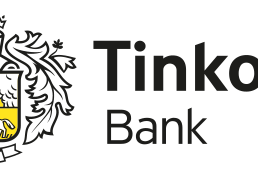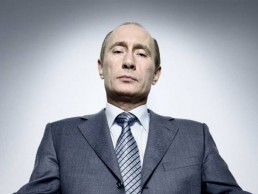
Victor Dostov: “The government does not fully understand the prospects of cryptocurrencies”
Interview with the chairman of the board of Electronic money Association Victor Dostov.
What does the Russian Electronic Money Association think about cryptocurrencies?
Electronic Money Association represents the largest payment business in Russia. One of our duties to the industry is the study of new payment technologies and raising public awareness of innovative payment methods. From this point of view, I think Bitcoin and its analogues are a new generation of digital money, invented back in 1980s by David Chaum. This technology is certainly a breakthrough in payments. We don’t think that cryptocurrencies and existing payment methods (such as electronic money or payments via prepaid mobile accounts) will necessarily compete. For members of our association and the Bitcoin community more preferred goal is creating the products that could inherit the best of two worlds.
We all have heard a lot about the position of the Central Bank in relation to cryptocurrencies. Will the authorities recognize at the same time that Blockchain technology comes laden with benefits?
Unfortunately, we haven’t yet heard a clear confirmation of the benefits of this technology by authorities. However, representatives of some major Russian banks (including government ones) have expressed their interest in cryptocurrencies. I realize that Russian officials still have very limited knowledge about the benefits of this tool. Some government agencies have asked us about Bitcoin, but now, surprisingly, there are much more questions in this issue from abroad rather than from within the country. I hope this will change. It’s quite difficult to promote the technology while some members of the Bitcoin community are positioning it as anti-state: sad but true.
Many publications such as Bloomberg and WSJ said that technology Bitcoin “is here to stay”. In your opinion, is it possible to integrate the Blockchain-technologies with national monetary system of Russia, just as Ecuador and Philippines are going to do it?
I fully agree that in the next ten years, the technology will continue to be used, including other projects. However, at this stage I am quite skeptical about the possibility of its integration with the national monetary system, whether in Russia or other countries. First, monetary policy is usually conservative by its nature: it is sometimes easier and cheaper to work the old fashioned way than to explore something new. States need to know about the exact, quantifiable benefits and related costs in the first place. Second are the benefits for the customers. It may surprise, but in general, users don’t like anonymity, they don’t need it and don’t use it. They want their payment instruments could be restored in case of theft, destruction, etc. Classic digital cash don’t allow that, and it’s one of the reasons why the first projects of digital cash (e.g. DigiCash) wrecked back in the 1990s.
Speaking about Russia specifically, I think that this can be a point in discussion within the Central Bank in 5-10 years, minimum.
What is your opinion on the fines and penalties suggested by the Russian authorities for the use and emission of cryptocurrencies?
We are concerned about the suggested bill. I do not think that fines and a ban is a way to handle the risks that cryptocurrencies pose, just as any other technology. Perhaps this government’s approach is based on a limited understanding of prospects of cryptocurrencies on a long-term horizon. Here I can only add that we have informed the Ministry of Finance about our concerns and potential pitfalls of excessively prohibitive approach.
How do you feel about the fact that simultaneously with the prohibition of cryptocurrencies is suggested to ban an access to relevant information sources?
Suggestion to ban the dissemination of information related to emission and transfers by means of “money substitutes” is a logical way to enforce the prohibition of cryptocurrencies. Due to the decentralized nature of this technology, regulatory authorities will find it difficult to find participants of the transactions. However, Russian legislation makes it possible to order all Internet providers in the country to deny access to certain websites. Currently such measures are taken only in relation to child pornography, information on suicides, drugs and in relation to extremist materials. The approach described in the bill is extreme and, if passed, will significantly limit access to information on cryptocurrencies. Technically, all web sites providing software, web services and even Wikipedia page on Bitcoin will be eventually banned in Russia.
If passed, do you think these regulations could be enforced given that the currency is decentralized similar to the internet? Does this not imply state control of the internet as well?
I think that Internet is already more regulated than we like to think. Some degree of control is exercised in many countries. In China it is censored by the Great Firewall, in Russia Internet providers are made to block access to some websites, in the EU ‘the right to be forgotten’ can now be used. Fact is the transport for information is more or less decentralized. Websites, web services are not: they are always somewhere.
Whether we like it or not, states will regulate the Internet and that has nothing to do with Bitcoin. We have already seen this in payments: today almost no state wants foreign companies to process transactions for their citizens. I am pretty sure that in 15 years Google will find itself as much regulated in most countries as Visa and Mastercard now are. It is not the regulation itself but striking the right balance I am mostly concerned about.
Bitcoin expert Andreas Antonopoulos appeared before a Canadian Senate and stated “I think this technology needs time to breathe, it needs time to show the full potential of what is possible with decentralized, programmable money”. Your thoughts?
I do agree. Come to think about it that is true for any technology. If we tried to limit the expansion of the Internet, who knows what it would look like now. Same goes to any technological innovation. Will decentralized cryptocurrency change the way we pay? I do not know. And truth is, at this point, no one does.
Should we continue to explore the possibilities? Certainly. My belief is that the state should step back a little, at least for now. But regulation will be inevitable – this is one of the lessons history teaches us. I know that many Bitcoin users do not want that, but this is a fact.
Many people have called Bitcoin the greatest invention since the Internet. Are there any concerns that Russia will be left behind with respect to technological innovation compared to more Bitcoin-friendly jurisdictions and tech-hubs such as the State of California, Isle of Man, Denmark etc.?
This is one of the concerns we relayed to the Russian Ministry of Finance. From a legal perspective, I like to think about Bitcoin as a litmus test for regulation. Regulative approach towards cryptocurrencies reflects its flexibility and susceptibility to innovation.
This summer I spoke at the first large Bitcoin Russian conference in Saint-Petersburg and saw many bright entrepreneurs and researchers who presented their projects. Overly strict regulation will regrettably push them outside the country and Russia will definitely lose in this jurisdictional arbitrage. I still hope that it will not be the case. But this is one of the biggest concerns to date.
Do you think Bitcoin has a future in Russia?
At this point, I do not think that Bitcoin can become a mainstream mean of payment in Russia. We have rather elaborate and cheap payment products based on e-money transfers and payment cards. For example, Russia is the first country to make Visa card-to-card transfer. The other thing is technology itself. If the regulator opts for a milder approach, Russian businesses will be open to embrace its benefits, just as their counterparts in any other country.



